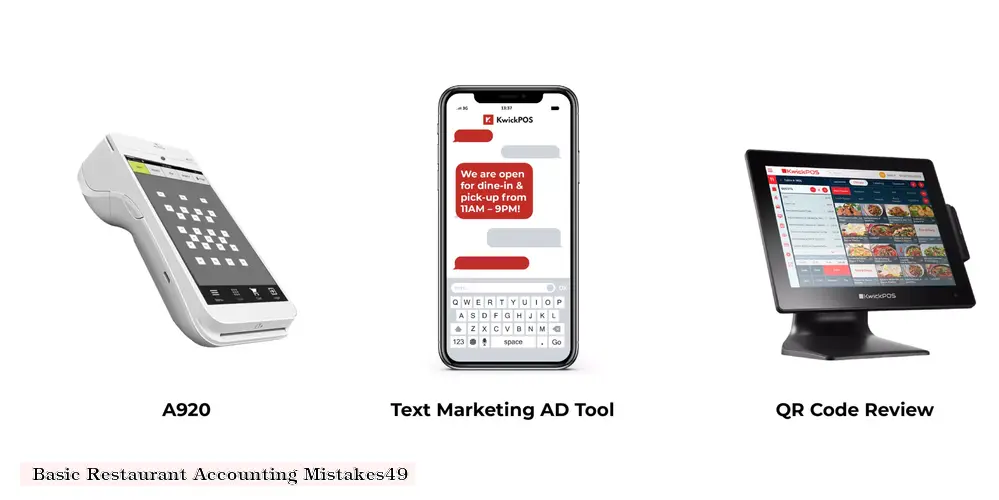

Maintaining accurate financial records is crucial for the success of any restaurant business. However, even experienced restaurateurs can make accounting mistakes that can have significant consequences. Here are some common pitfalls to watch out for:
1. Mixing Personal and Business Expenses:
Keep your personal and business finances separate. Using business funds for personal expenses or vice versa can lead to confusion and potential legal issues.
2. Not Tracking Cash Flow:
Cash flow is the lifeblood of any business. Regularly monitor your cash flow to ensure you have enough funds to cover expenses and make informed decisions.
3. Ignoring Inventory Management:
Proper inventory management is essential for controlling costs and preventing waste. Track your inventory levels regularly and adjust your ordering accordingly.
4. Overlooking Labor Costs:
Labor costs are typically the largest expense for restaurants. Accurately track employee hours and wages to ensure you're paying the correct amounts and staying within budget.
5. Not Reconciling Bank Statements:
Regularly reconcile your bank statements with your accounting records to identify any discrepancies or errors. This helps ensure the accuracy of your financial data.
6. Neglecting Sales Tax Reporting:
Sales tax reporting is a legal requirement. Ensure you're collecting and remitting sales tax accurately to avoid penalties and fines.
7. Failing to Depreciate Assets:
Depreciation allows you to spread the cost of long-term assets over their useful life. Neglecting depreciation can lead to overstated profits and incorrect tax calculations.
8. Not Using Accounting Software:
Manual accounting can be time-consuming and error-prone. Consider using accounting software to streamline your processes and improve accuracy.
9. Ignoring Financial Reporting:
Regularly review your financial reports, such as profit and loss statements and balance sheets, to monitor your restaurant's performance and make informed decisions.
10. Not Seeking Professional Help:
If you're not confident in your accounting abilities, don't hesitate to seek professional help from an accountant or bookkeeper. They can provide guidance and ensure your financial records are accurate and compliant.
By avoiding these common mistakes, you can maintain accurate financial records, make informed decisions, and ensure the long-term success of your restaurant business.
DISCLAIMER: This information is provided for general informational purposes only, and publication does not constitute an endorsement. Kwick365 does not warrant the accuracy or completeness of any information, text, graphics, links, or other items contained within this content. Kwick365 does not guarantee you will achieve any specific results if you follow any advice herein. It may be advisable for you to consult with a professional such as a lawyer, accountant, or business advisor for advice specific to your situation.

today
Copyright © 2025 Kwick365.com
Designed by KwickPOS is the best restaurant POS